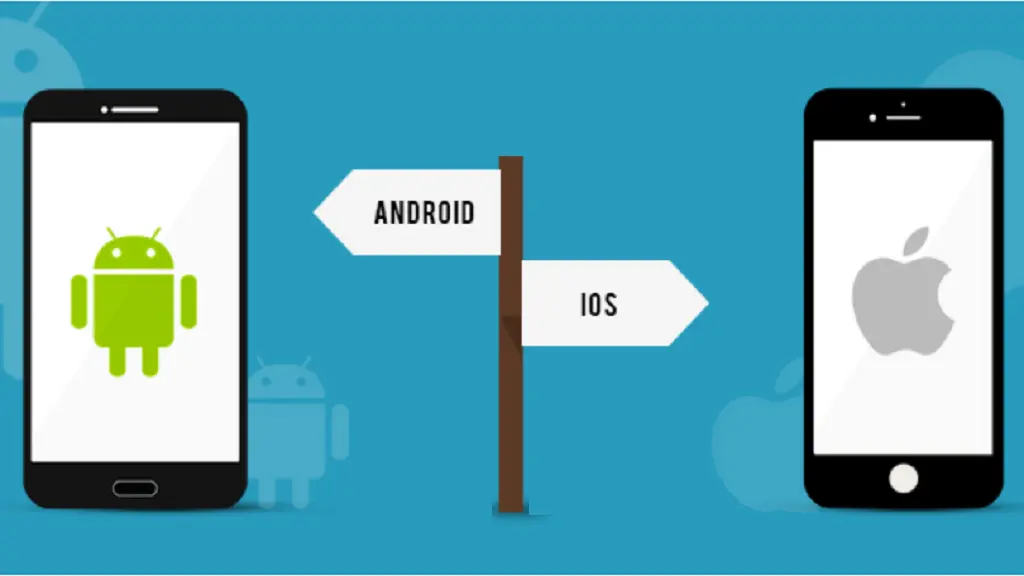
A larger audience must be attained in the constantly changing world of mobile app development if success is to be maximized.
However, many iOS app developers have looked into porting their iOS apps to Android in an effort to increase their user bases. It is crucial to negotiate this change strategically because it has its own set of expenses and difficulties.
This blog explores the complexities of porting iOS apps to Android, including the costs involved, potential difficulties, and the critical role of iOS App Development Company and app development companies play in this transformational process.
Converting from iOS to Android in an Effort to Reach a Wider Audience
For app developers, user base diversification has taken the top spot on their priority list. Here the idea of translating iOS apps to Android is put to use.
However, such shift presents the opportunity to reach an exponentially wider audience given the substantial market share and worldwide appeal of Android.
The Associated Costs Go Beyond Financial Consequences
1. Budgetary Investment
Costs associated with development, design, testing, and quality assurance are high when porting iOS software to Android.
It’s critical to set aside money for this project, even if the specifics will vary depending on how complicated the software is.
2. Time and Resources
The conversion process requires a large commitment of both time and human resources in addition to money.
Furthermore, the best developers should understand the Android platform and its nuances thoroughly, adapting the app’s codebase, design, and functionalities accordingly.
Be Aware of Future Obstacles You Might Come Across
While moving from iOS to Android comes with challenges, the right approach can turn them into advantages. Here are the key obstacles to consider when preparing an iOS app for Android porting.
1. Fragmentation
In order to guarantee a consistent user experience across devices, this fragmentation may present difficulties.
2. User Experience
iOS and Android follow different design standards, making it challenging to adapt an iOS app’s UI/UX to Android’s Material Design while preserving core features.
3. Coding Differences
Android apps are primarily written in Java, whereas iOS apps are created using Swift or Objective-C. In order to ensure the best performance on Android, developers must rewrite features and code snippets.
4. Testing and Debugging
Thorough testing is essential to guarantee that the app runs without a hitch on a variety of Android devices and versions. It takes time and effort to fix flaws, inconsistencies, and crashes.
The Function of iOS App Development Firms For Converting iOS Apps To Android
A wise strategic move in the conversion process is to collaborate with seasoned iOS app development or app development organizations.
1. Knowledge
These businesses have a great deal of experience developing for both iOS and Android. which enables them to manage the complexities of platform-specific specifications and coding languages.
2. Design Consistency
Skilled designers may update the user interface of the app while following to Android’s design standards and keeping the app’s unique features.
4. Efficiency
By utilizing their knowledge, these businesses may optimize resources and minimize problems by streamlining the conversion process.
4. Quality Control
Strict testing assures the app’s reliability and effectiveness across the Android platform, ensuring a satisfying user experience.
Find out the best Strategy to Succeed
Understanding technical nuances and applying the right strategies helps ensure a successful iOS-to-Android app porting process.
Explore the key technical details and solutions to ensure a smooth app conversion and maximize success in the Android market.
It’s not only a technical task; porting iOS apps to Android is a calculated move. Here is a guide to migration success:
- Thorough Analysis: It is essential to determine whether porting your iOS software to Android is feasible and whether doing so could be advantageous. Moreover, you also have to analyze the competition, market trends, and your target audience.
- Team Coordination: You may also have to create a knowledgeable group of Android designers, developers, and quality assurance professionals. For thorough support, work together with iOS app development firms and app development companies.
- User-Centric Design: You must update the app’s user interface to conform to Android’s Material Design to give Android users a seamless and simple experience.
- Code Adaptation: You have to adapt the app’s codebase to the programming languages used by Android while maintaining the essential functionality.
- Optimized Rollout: Moreover, you will also have to make use of app stores and marketing techniques to strategically deploy the Android version and increase downloads and visibility.
Enhancing User Engagement by Adopting a User-Centric Approach
User engagement is one of the crucial elements that can make or break the success of the conversion of iOS apps to Android. Learn how a user-centric strategy can improve user satisfaction and engagement during the conversion process.
Understanding the Dynamics of User Engagement
– User Expectations
When it comes to user interface, navigation, and features, Android users have specific expectations. It’s essential to comprehend these expectations in order to deliver a seamless and gratifying experience.
– Integration of User Feedback
You will have to take into account the preferences, problems, and ideas of iOS users. To increase user engagement, it is also essential to take care of these in the Android version.
– Localized Experience
You will be able to adapt the app to different markets and geographic areas. Moreover, you need to increase engagement by customizing content, language, and functionality to appeal to local users.
Methodologies to Enhance The User Engagement:
- Improve User Engagement Techniques Adapt UI for Android: You can create a visually appealing and user-friendly interface by incorporating Android’s design concepts. However, it will not only increase engagement but also create a familiar feeling.
- Streamlined Navigation: Give top priority to logical and unambiguous navigation paths that make it simple for users to access functionality. Avoid confusing menus that could reduce participation.
- Feature Parity: When creating an Android version of an app, make sure to keep all of the crucial features that were in the iOS version. Customer satisfaction is increased through consistency across platforms.
- Advantage Android Features: To improve user engagement and involvement, you should make advantage of Android-specific features like widgets, notifications, and intents.
However, a recognized app development business like us is always prepared to assist you in this endeavor by guiding you through the complexities of iOS to Android conversion.
Our team of professionals combines years of expertise with a passion for innovation to guarantee a smooth migration that unlocks the full potential of your app.
Call or email us right away as we are the best iOS App Development Company to let you embark on this transformational journey together.









